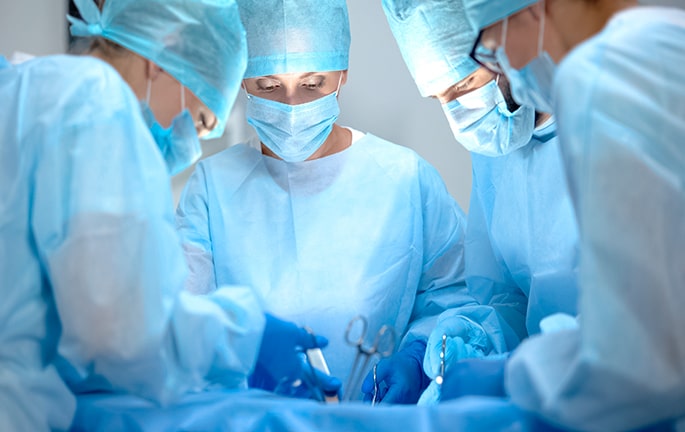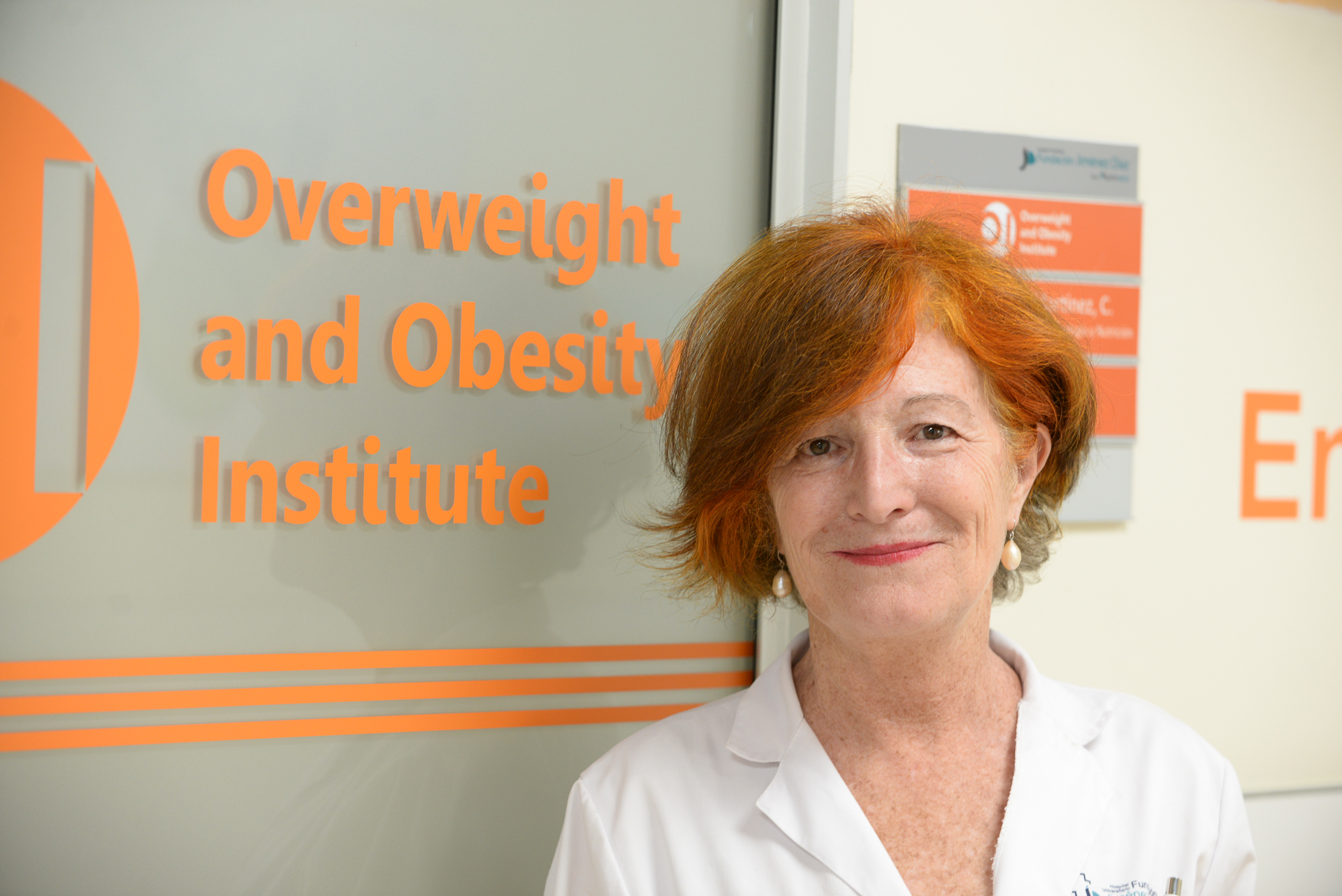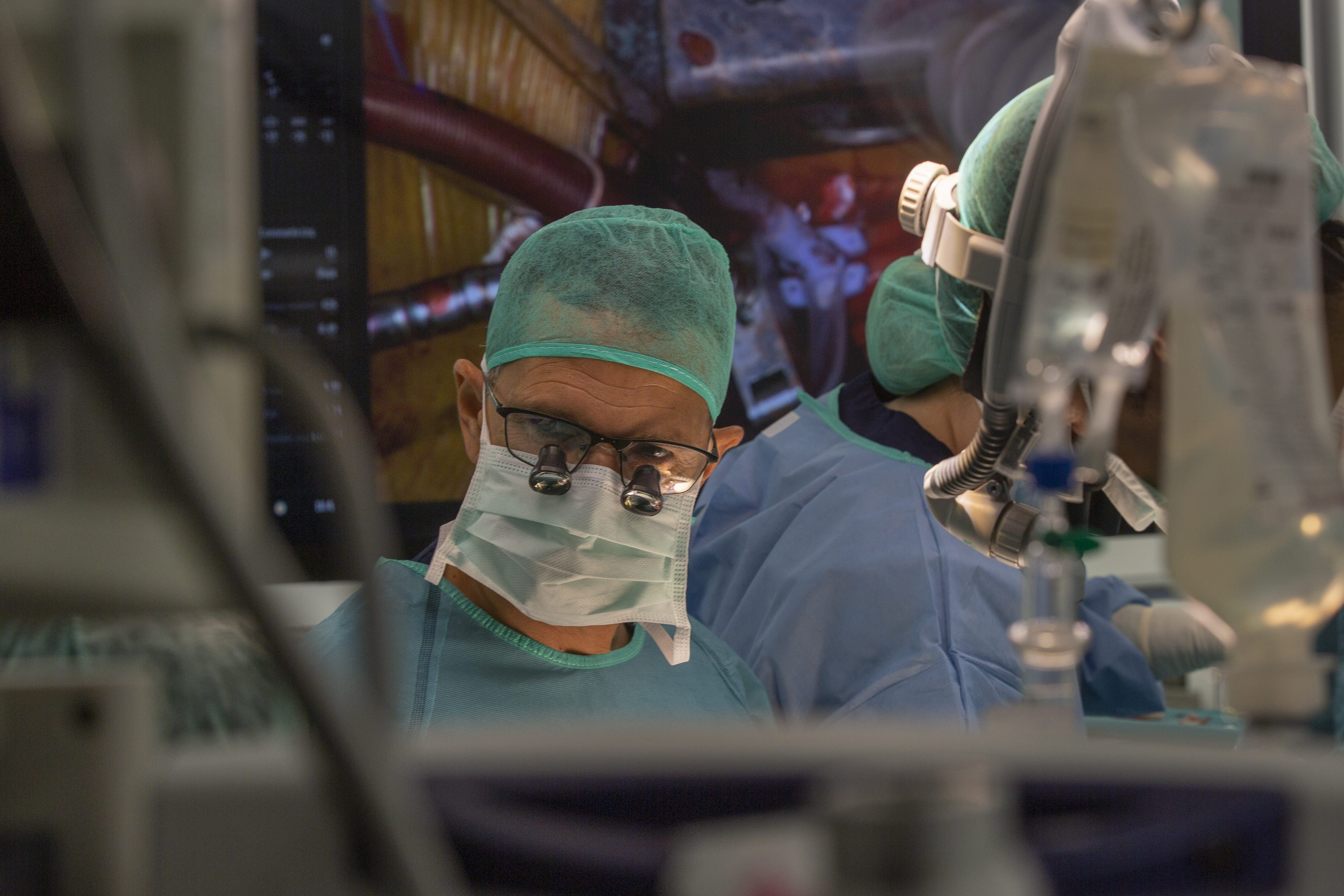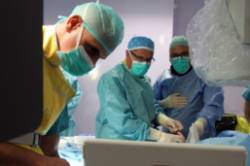Cardiovascular Surgery
We explain what cardiovascular surgery is, the main diseases it treats, and the procedures commonly used. Discover the different types of cardiovascular surgery performed and how to prepare for your consultation. Schedule an appointment at one of our hospitals.

What is cardiovascular surgery?
Cardiovascular surgery focuses on the surgical treatment of conditions affecting the circulatory system, including diseases of the heart, veins, arteries, and lymphatic vessels throughout the body.
Specialists in this field work closely with cardiologists. The main difference between cardiovascular surgeons and vascular surgeons is that the latter do not treat diseases affecting the heart or the arteries and veins in the brain.
What does cardiovascular surgery study?
The field of cardiovascular surgery is extensive, addressing a wide range of complex conditions. For this reason, Quirónsalud specialists are divided into different units to provide the best possible treatment for patients. These units include:
- Arrhythmia Unit: Treats heart rhythm disorders using pacemakers, defibrillators, cardiac resynchronization devices, Holter monitors, or ablation procedures.
- Heart Failure Unit: Focuses on patients whose hearts do not pump effectively. Treatment involves medication and lifestyle modifications.
- Pulmonary Hypertension Unit: Manages patients with high blood pressure in the right side of the heart and the lungs. Treatment includes medication or surgery.
- Ergometry Unit: Conducts tests to evaluate the heart’s response to physical exertion.
- Hemodynamics Unit: Specializes in cardiac catheterizations to diagnose and often simultaneously treat diseases. These procedures do not require general anesthesia.
Who are the patients for cardiovascular surgery?
Cardiovascular surgery treats patients with conditions affecting the heart, pericardium, and major thoracic vessels who do not respond to medical treatment and therefore require surgical intervention to recover.
Techniques, procedures, and diagnostic methods
Cardiovascular surgeons perform highly precise procedures requiring expertise in advanced technology. The most commonly used treatments in this specialty include:
- Coronary artery bypass grafting (CABG): Also known as coronary bypass surgery, this procedure redirects blood flow to bypass a blocked area. This is achieved by connecting two healthy sections of an artery or vein, thereby eliminating the obstruction.
- Defibrillator implantation: Involves placing an electrode in the heart and a generator in the chest to deliver controlled shocks to treat ventricular arrhythmias.
- Subcutaneous Holter monitor implantation: A diagnostic procedure that provides continuous heart activity monitoring.
- Pacemaker implantation: Electrodes are placed in the heart and a generator is implanted under the chest skin to maintain an appropriate heart rate and treat bradyarrhythmias.
- Cardiac catheterization: A thin tube with a camera at its tip is inserted through a vein or artery to detect narrowings or blockages, which in some cases can be treated during the same procedure.
Diseases and symptoms
Major conditions and diseases
Some of the most frequently treated conditions in cardiovascular surgery include:
- Aneurysms
- Arrhythmias
- Atrial fibrillation
- Angina pectoris
- Pericarditis
- Heart failure
- Bradycardia
- Vasculitis
- Pulmonary edema
- Myocarditis
- Myocardial infarction
- Pulmonary hypertension
Related symptoms
Some of the symptoms leading patients to seek consultation include:
- Tachycardia
- Vomiting
- Chest pain
- Nausea
- Dizziness
- Fatigue
- Seizures
- Sweating
- Shortness of breath
- Neck stiffness
About the cardiovascular surgery consultation
We solve any doubts you may have before you see the specialist
Patients are usually referred to a cardiovascular surgery consultation by a cardiologist who has diagnosed a condition requiring surgical intervention. As a result, the diagnostic process is typically brief.
What should you consider?
During the first appointment, the surgeon will take the patient’s medical history and review the cardiologist’s report. A physical examination is then conducted, and additional tests may be requested. During the consultation, the surgeon explains the available treatment options and recommends the most appropriate one for each specific case.
What should I bring to the consultation?
It is advisable to bring all medical reports related to the condition requiring treatment, along with a list of current medications and any relevant cardiac or vascular history.

If you have any further questions, please contact us through the Patient Services telephone number: 900 301 013





























































